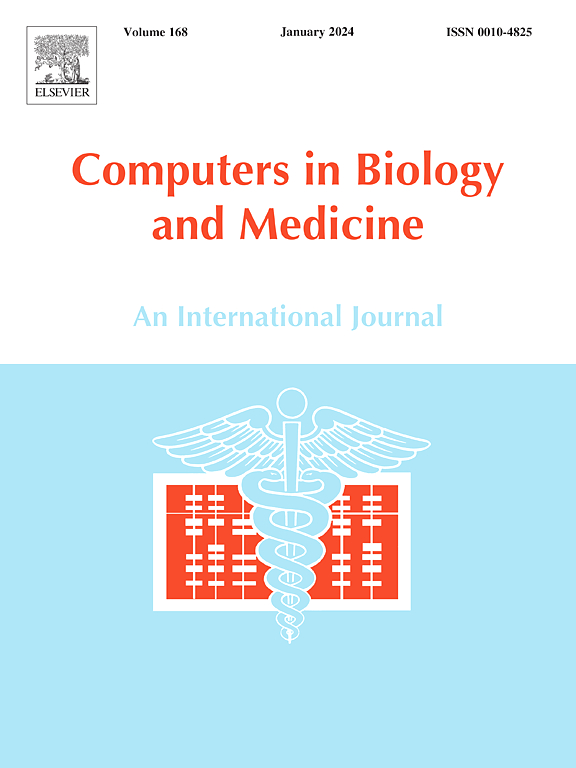基于优化神经网络的阿尔茨海默病检测与分类
IF 6.3
2区 医学
Q1 BIOLOGY
引用次数: 0
摘要
阿尔茨海默病(AD)是一种退行性神经系统疾病,其特征是认知能力的进行性下降,导致记忆障碍和执行日常任务的限制。及时准确地识别AD对于及时干预和提高患者预后至关重要。本研究将深度强化学习(DRL)与蛾焰优化递归神经网络(MFORNN)相结合,开发了一种新的AD机制研究方法。首先,对脑MRI样本进行采集和预处理,去除噪声特征,提高图像质量。因此,MFO算法从预处理图像中捕获并选择信息量最大且高度相关的特征,使递归神经网络(rnn)更容易学习区分正常和ad影响图像的时间依赖性和模式。DRL组件通过其基于奖励的机制微调RNN的参数,确保分类器产生准确的结果并降低计算复杂度。利用Python工具实现了概述的框架,结果表明,设计的算法达到了99.31%的准确率,99.24%的精密度,99.43%的召回率和99.35%的f-measure。最后,对已建立的分类器模型进行了比较分析,肯定了所提出的技术优于传统算法的性能。本文章由计算机程序翻译,如有差异,请以英文原文为准。
Alzheimer's Disease detection and classification using optimized neural network
Alzheimer's disease (AD) is a degenerative neurological condition characterized by a progressive decline in cognitive abilities, resulting in memory impairment and limitations in performing daily tasks. Timely and precise identification of AD holds paramount importance for prompt intervention and enhanced patient prognosis. In this research, a novel approach to AD mechanism was developed by combining Deep Reinforcement Learning (DRL) with a Moth Flame Optimized Recurrent Neural Network (MFORNN). Initially, the brain MRI samples are gathered and preprocessed to discard the noise features and to improve their quality. Consequently, the MFO algorithm captures and selects the most informative and highly correlative features from the preprocessed images, making it easier for Recurrent Neural Networks (RNNs) to learn the temporal dependencies and patterns differentiating normal and AD-affected images. The DRL component fine-tunes the parameters of RNN through its reward-based mechanism, ensuring that the classifier produces accurate outcomes and reduces computational complexity. The Python tool was utilized to implement the outlined framework, with the outcomes showcased that the designed algorithm attained an accuracy of 99.31 %, precision of 99.24 %, recall of 99.43 %, and f-measure of 99.35 %. Ultimately, a comparative analysis was performed against established classifier models, affirming the superior performance of the proposed technique over conventional algorithms.
求助全文
通过发布文献求助,成功后即可免费获取论文全文。
去求助
来源期刊

Computers in biology and medicine
工程技术-工程:生物医学
CiteScore
11.70
自引率
10.40%
发文量
1086
审稿时长
74 days
期刊介绍:
Computers in Biology and Medicine is an international forum for sharing groundbreaking advancements in the use of computers in bioscience and medicine. This journal serves as a medium for communicating essential research, instruction, ideas, and information regarding the rapidly evolving field of computer applications in these domains. By encouraging the exchange of knowledge, we aim to facilitate progress and innovation in the utilization of computers in biology and medicine.
 求助内容:
求助内容: 应助结果提醒方式:
应助结果提醒方式:


